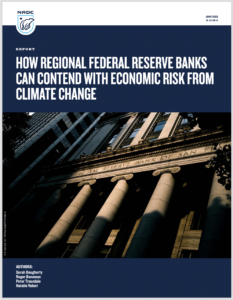Climate change, in addition to endangering human health and safety, poses a significant risk to the U.S. financial system and important parts of our economy. For example, coastal economies are harmed by more frequent and powerful hurricanes; agriculture is suffering from worse droughts; and businesses, residences, and people in or near wildfire areas are threatened both by the wildfires themselves and the air pollution they cause. The Federal Reserve System—the central bank of the United States—is directed to safeguard the stability of the financial system and contain systemic risks, promote the safety and soundness of individual financial institutions, maintain stable prices, maximize employment and promote community development. Under this mandate, the Fed and the 12 District Banks have a duty to address climate change–related financial risk. By considering the risks— both to the economy generally and to individual financial institutions—posed by more extreme weather events and a transition to a low-carbon economy, the Fed can potentially avert or cushion shocks to impacted industries, geographical areas, and crosscutting supply chains and to affected lenders, investors, and consumers.
After reviewing regular reports published by the District Banks (Beige Books) and considering their unique tools and powers, we recommend several steps individual Reserve Banks can take to integrate climate considerations into their work, particularly for the Beige Books and other research that informs monetary policy and other Fed decisions.
